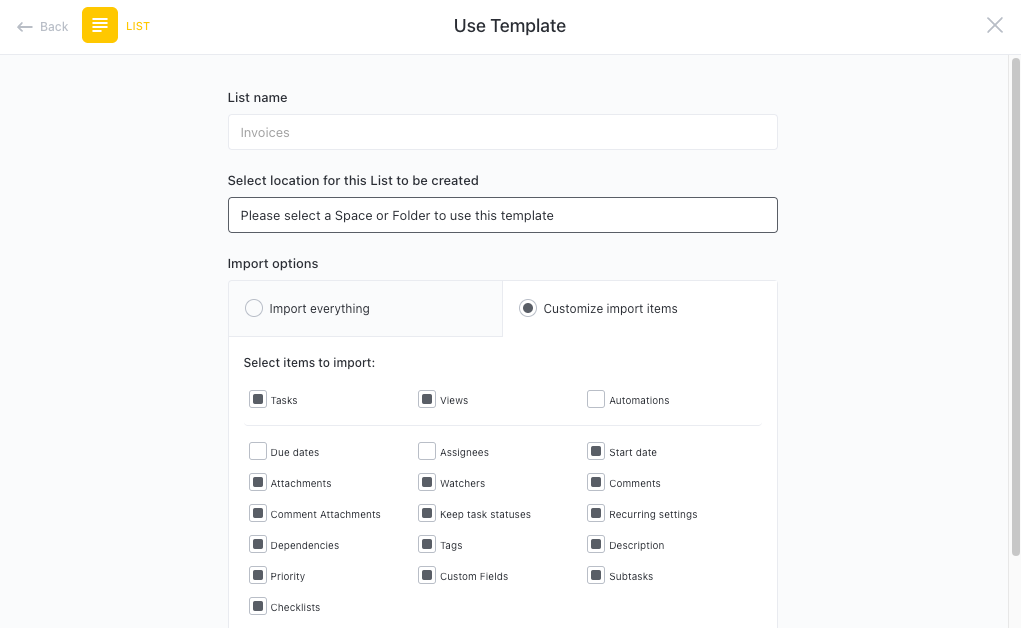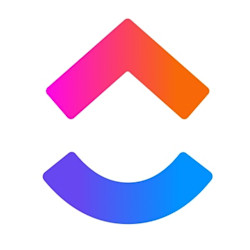Planning a theme park project requires a roller coaster of organization, creativity, and attention to detail. With ClickUp's Theme Park Project Proposal Template, you can bring your wildest ideas to life and make your project a thrilling success!
This template will help you:
- Outline your project objectives, timelines, and budget in a clear and comprehensive manner
- Collaborate seamlessly with your team, contractors, and stakeholders to ensure everyone is on the same ride
- Track progress, milestones, and key tasks to keep your project on track and within budget
Whether it's a whimsical fairy tale land or an adrenaline-pumping adventure park, ClickUp's Theme Park Project Proposal Template is your all-access pass to creating the ultimate theme park experience. So buckle up and get ready for project success!
Benefits of Theme Park Project Proposal Template
Planning a theme park project can be a daunting task, but with the Theme Park Project Proposal Template, you'll have everything you need to bring your vision to life. Here are some of the benefits of using this template:
- Streamline the project planning process by having a clear structure and framework to follow
- Easily communicate your ideas and plans to stakeholders, investors, and team members
- Save time and effort by utilizing pre-designed sections for project objectives, budget, timeline, and more
- Ensure consistency and professionalism in your proposal with a visually appealing and well-organized template
Main Elements of Theme Park Project Proposal Template
ClickUp's Theme Park Project Proposal template is the perfect tool to plan and execute your theme park project with ease. Here are the main elements of this Whiteboard template:
- Custom Statuses: Keep track of the progress of your project with two customizable statuses - Open and Complete. Easily visualize the status of each task and ensure nothing falls through the cracks.
- Custom Fields: Utilize custom fields to capture important information about your theme park project. Include fields such as Budget, Timeline, Stakeholders, and more to keep all relevant details in one place.
- Custom Views: Access two different views to manage your project effectively. The Project Proposal view allows you to outline your project plan and present it to stakeholders, while the Getting Started Guide view provides a step-by-step guide to kickstart your theme park project.
- Collaboration Tools: Collaborate seamlessly with your team using features like comments, attachments, and real-time collaboration on the Whiteboard. Keep everyone on the same page and ensure smooth project execution.
With ClickUp's Theme Park Project Proposal template, you'll have all the tools you need to bring your theme park project to life.
How to Use Project Proposal for Theme Park
If you're looking to create a winning theme park project proposal, follow these six steps using the Theme Park Project Proposal Template in ClickUp:
1. Research and analyze the market
Start by researching the current trends and market demand for theme parks. Look for gaps in the market and identify potential target audiences. Analyze competitor theme parks to understand their strengths and weaknesses.
Use the Table view in ClickUp to gather and organize your research findings.
2. Define your project goals and objectives
Clearly outline the goals and objectives of your theme park project. What experience do you want to provide to visitors? What revenue targets do you want to achieve? Establishing these goals will help guide your proposal.
Create tasks in ClickUp to list and prioritize your project goals and objectives.
3. Develop a comprehensive plan
Create a detailed plan for your theme park project. Include information about the park layout, attractions, rides, entertainment, food and beverage options, ticketing, and marketing strategies. Your plan should demonstrate a thorough understanding of the project's feasibility and potential success.
Use the Gantt chart in ClickUp to map out your project timeline and tasks.
4. Determine the financials
Estimate the costs involved in building and operating your theme park. Consider construction expenses, equipment costs, staffing requirements, marketing expenses, and ongoing maintenance and operational costs. Calculate potential revenue streams such as ticket sales, merchandise, and food and beverage sales.
Use custom fields in ClickUp to track and calculate your financial projections.
5. Present your proposal
Compile all the information from your research, goals, plan, and financials into a professional and visually appealing proposal. Clearly communicate your vision, unique selling points, and the potential return on investment for investors or stakeholders.
Use the Docs feature in ClickUp to create a visually appealing and persuasive proposal.
6. Review and refine
Before submitting your proposal, review it carefully to ensure accuracy, clarity, and coherence. Seek feedback from colleagues or industry experts to make any necessary improvements. Continuously refine your proposal until it is polished and ready for presentation.
Set a recurring task in ClickUp to review and refine your theme park project proposal regularly.

Get Started with ClickUp's Theme Park Project Proposal Template
Entrepreneurs and project managers can use this Theme Park Project Proposal Template to streamline their planning process and create a successful theme park venture.
First, hit “Get Free Solution” to sign up for ClickUp and add the template to your Workspace. Make sure you designate which Space or location in your Workspace you’d like this template applied.
Next, invite relevant members or guests to your Workspace to start collaborating.
Now you can take advantage of the full potential of this template to create a thrilling theme park experience:
- Use the Project Proposal View to outline your overall vision, objectives, and budget
- The Getting Started Guide View will provide a step-by-step roadmap to kick off your theme park project
- Organize tasks into two different statuses: Open and Complete, to track progress
- Assign tasks to team members and set deadlines for each stage of development
- Collaborate with stakeholders to brainstorm ideas and make necessary adjustments
- Set up notifications to stay updated on task completion and project milestones
- Monitor and analyze project-related data to ensure a smooth and successful theme park launch








